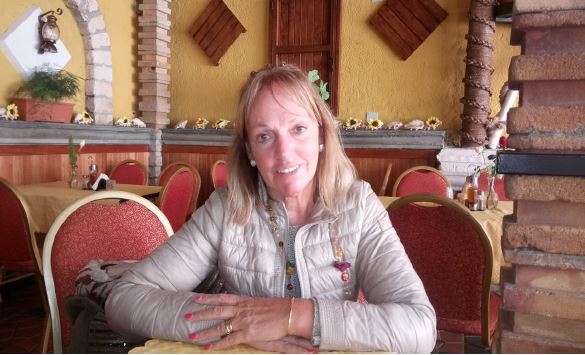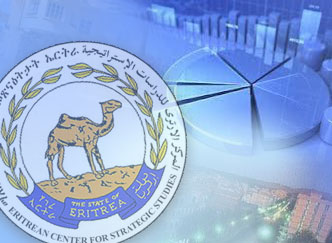December 1, 2018
Dr . Donatella’s vision of collaboration for Eritrean and Italian Schools

Billion Temesghen | Education has been a key area of focus for Eritrea since the country’s independence. The People and Government of Eritrea have worked closely with several international organizations and institutions in order to improve the quality of education in the country.
The Italian Institute in Asmara is one example of a successful educational partnership in Eritrea. Recently, Dr. Donatella Buonriposi, Director of Tuscany’s Regional Scholastic Office, spent some time in Asmara, allowing her to visit the Italian Institute and get a better understanding of Eritrea’s educational system. Today, we speak with Dr. Donatella about her experience in Eritrea and cooperation between Eritrea and Italy in education.
Welcome to Eritrea, Dr. Donatella. Tell us a little about your visit.
Thank you. I have thoroughly enjoyed my stay here in Eritrea. It has been a pleasant experience. I came to Eritrea to visit the Italian Institute in Eritrea. I want to enhance my knowledge and see how things work here. From there, I’d like to acquire some lessons that I can apply back at home.
Also, I would like to explore the possibility of cultural cooperation between Eritrea and Italy. Eritrea has a beautiful history, of which Italy is a part. That part of history marks the cultivation of strong cultural bonds between the peoples of Eritrea and Italy. For me, the strongest point of cultural interaction is represented by the Italian educational institutions – though modest – here in Asmara, Eritrea.
During your visit to Eritrea, what stood out for you the most?
The tourism potential of Eritrea is immense. With the recent historical developments and changes, Eritrea will surely be able to tap into one of its biggest resources – its tourist attractions. I would like to share a personal experience I felt when I first discovered Massawa. It felt like I was in Venice! Massawa is a beautiful, historic place. It impressed me the most.
I understand that you have visited several schools?
Eritrea has a history of resilience and one can instantly understand the reason behind Eritreans’ pride. People are really proud of their history and heritage. Love for land and country are legacies that I believe should be passed on to future generations. And, of course, there is no better instrument than schools to help achieve that end. It all starts in schools.
I would recommend that organizational work be planned and implemented in schools, including having students clean and repair school materials or buildings. I have seen many things that can and should be repaired by the students themselves. It may seem to be of little impact, but in reality it has a massive impact. Students who love their school and are devoted to its beautification will be people or citizens of principles once they grow older.
Now, I understand and extremely respect the Eritrean values. My two trips, this one being the second, have been very helpful for me. I was able to attain a better understanding of the Eritrean people. This society is one of great patriotic values and I believe that schools can be instrumental in keeping those values intact amongst the youngest generation.
Could you elaborate a bit more? How exactly was this trip instrumental for you?
It was useful in terms of the vision I have for Eritrean and Italian schools working together. There is so much that the two countries can collaborate on which can benefit the Eritrean and the Italian people. For instance, the Italian school here in Asmara could include more courses than are currently being offered. The school could serve as a center of information or cooperation with other local schools.
I believe there should be increased dialogue between the education ministries, and other ministries, of both governments. I have learned that Eritrea’s Ministry of Education works closely with the Italian Institute for example. In my view, such cooperation and dialogue should be strengthened for further positive outcomes.
We can work based on the existing gaps or needs of Eritrea. I am speaking about vocational training that can serve the country. Be it for tourism or agro-industry. For example, Eritrea is endowed with abundant tourist sights, most of which are conserved. There are countless natural, historical, architectural, and cultural traits that make Eritrea’s cities and towns beautiful, unique, and distinctive.
Now would be the ideal time to begin vocational training courses related to the tourism sector. For example, courses in hotel management, customer service, and others would be highly beneficial. With Eritrea finally at peace, I believe countless tourists will flock to the country in order to experience its amazing beauty, rich culture, and unique historical sites. It would be ideal, in my view, for the Italian institutions, in collaboration with local institutions, to introduce vocational training courses that could improve the tourism sector.
Dr. Donatella, are there any final comments that you would like to add?
I would like to extend my greetings to the Eritrean people. I hope that Eritrean and Italian educational institutions can continue to work together and improve their cooperation for the benefit of the two peoples.



